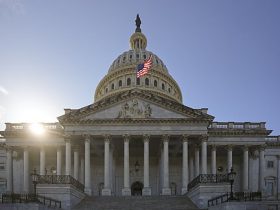Until the publication in 1920 of Ludwig von Mises’s work on the problem of economic calculation in socialism, there was no scientifically useful analysis of the economics of the socialist economy. With that work , and its development in the comprehensive treatise Die Gemeinwirtschaft (1922 and 1932, published in English in 1951 as Socialism: An Economic and Sociological Analysis), Mises demonstrated that because of the absence of private ownership of the means of production, rational economic accounting is not possible under socialism.
This insight is relevant still today. Mises’s principle of economic rationality is not only valid for a full-fledged socialist system but also for mixed economies; any step away from the private ownership of the means of production and monetary calculation based on market prices sets the economy on a path away from economic rationality.
Role of Money and Markets
Money is indispensable for economic activity if that activity extends beyond the limits of a household or simple activities. A society based on the division of labor needs money because the coordination of individuals’ economic activity requires prices, which serve as signals for economic action. According to Mises: “Money is not a measure of value, nor is it a measure of price. The value is not measured in money. Prices are also not measured in money; they consist in money.”
Money has its shortcomings, but for the practical purposes of economic life, money works sufficiently well for economic transactions. Without monetary calculation, rational economic activity would be impossible. The inadequacy of monetary accounting comes from the fact that economic calculation is based on exchange value and not on subjective use value. Therefore, one must not apply monetary calculation to all aspects of life.
But monetary calculation does give the economic agent a guide to find his way through the abundance of economic possibilities. Money prices allow individual subjective value judgments to be extended to a wide range of market goods in the developed economy. Thus, money makes value calculable beyond the limited range of personal experience and extends business possibilities beyond immediate consumption to the production of capital goods.
Without monetary calculation, all production as a far-reaching process would be a “grope in the dark.” Economic man would be blind to the long detours of production that are typical of an advanced economy. Without money, the human mind would not be able to cope with the confusing abundance of intermediate products and production possibilities. One would be at a loss as to where to invest in the face of all the procedural and location issues to consider.
Carrying out economic calculation in monetary terms requires that two conditions be met. First, both consumer and intermediate goods must be included in the market economy. Exchange relations must take place on markets. Second, a medium of exchange must be used to create a common denominator for goods prices.
The Impossibility of Rational Calculation in the Planned Economy
If, as in the socialist system, there are neither free markets nor private ownership of the means of production, it becomes impossible to carry out rational economic calculations, as Mises explains:
Consider the situation of the socialist commonwealth. There are hundreds and thousands of workshops where people labor. Very few of them produce ready-to-use goods but mainly means of production and semi-finished products. All these companies are interconnected. Through these companies pass the economic goods one after the other until they are ready for consumption. In the restless gears of this process, however, the socialist economic manager lacks any possibility of finding the right way. . . . What possibility has the management to know whether this or that type of production is the more advantageous? It can, at best, compare the quality and quantity of the final usable results of production, but it will rarely be able to compare the efforts involved in their production.
In their role as consumers, the market participants determine the ranking of goods ready for being used in consumption. In their role as producers, businessmen select those capital goods that promise to render the highest yield. This way, not only the consumer goods but also the production goods, receive a ranking according to the present urgencies and the given state of the production technology. The interplay of the two evaluation processes ensures that the economic principle prevails everywhere, in consumption as well as in production.
Mises continues:
In a socialist economy, these essential conditions are missing. The planning authority may surmise which goods are most urgently needed, but it can only find that part that falls into the economic budget of the consumer. The other part, the evaluation of the means of production, escapes the knowledge of planners. It is true that the planning authority may determine the value of the totality of the means of production and the planners may also be able to determine the value of a single means of production, but the planning committee cannot attribute these estimates to a uniform price expression. This would require a market economy in which the prices can be traced back to a common expression, namely money.
No matter how strong their will, it is not possible for the masters of the planned economy to carry out the calculations necessary to reconcile production and consumption in such a way that the sum of capital is preserved and the surpluses obtained benefit the consumers.
Capital Calculation
The concept of “capital” has a firm place in economic accounting. A commercial economy’s capital is a summary of its capital assets that is expressed in monetary values. Such asset summaries and their regular review make it possible to determine how the value of assets has changed over time. The origin of the concept of capital lies in economic calculation. Its home is capital accounting, “this noblest means of the trained rationalization of action,” in Mises’s words.
When markets are abolished, as in a socialist economy, or are eroded by government intervention and monetary manipulation, as happens in the modern “mixed economy,” capital calculation loses its basis as a tool of economic rationality. Misallocations increase as the severity of the dissolution of property rights and other state interventions increases. Productivity declines and the standard of living sinks.
Capitalism, then, is that economic mode of production in which money is used for calculation so that the quantity of goods devoted to production can be summarized as capital and calculated according to its monetary value. Herein lies the distinction between capitalist and socialist production, and thus the difference between capitalism and socialism. Socialism is necessarily defined by the absence of capital calculation because of the abolishment of the private ownership of the goods of production. In contrast, the capitalist mode of production consists in determining the success or failure of specific economic actions by using monetary calculation to evaluate changes in the value of capital.
Because they do not consider the central issue of economic calculation, all other kinds of analyses of the socialist economy are inadequate and indeed worthless. After all, the fact that Karl Marx never analyzed the economic feasibility of socialism, and even banned his followers from doing so, had a devastating effect on the socialist movement. Thus, Marxism got stuck in the pure negativism of criticizing capitalism without developing a concept of socialism other than a dreamworld.
Conclusion
Without market transactions, there is no pricing, and without pricing, there is no economic accounting. Both conditions are necessary for rational economic calculation and depend on the private ownership not only of consumer goods but of producer goods as well. Any economic system, including a mixed economy, that deviates from the principles of private property, free markets, and sound monetary order will suffer from the decline of economic rationality. Consequently, both productivity and the standard of living will be lower.





